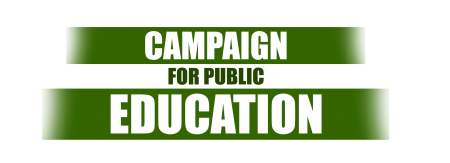Student Literacy Boost
Toronto Star Mar 24, 2008 Louise Brown Education Reporter
They're in Grade 1 and 2, but they sound like literacy professors.
"Hey. You dropped your rubric!" calls one 6-year-old, pointing to one of the small yellow checklists the teacher gives to each child that outline the points they should cover in their answers.
Another boasts he's made an important "connection" in his reading.
A third brags: "I'm almost writing at level 4!"
"Rubric" charts and connections and levels are part of a push to bolster reading and writing at Toronto's Claireville Junior Public School, with the help of the Ontario Focused Intervention Partnership (OFIP), a program funded by Queen's Park.
With $25 million, moral support and the latest teaching tips, Ontario's four-year-old Literacy and Numeracy Secretariat, a wing of the Ministry of Education, is using OFIP to help 1,181 struggling schools rethink how they teach the 3 Rs and get kids thinking more deeply and personally.
This sort of outside intrusion can "terrify" a school at first, admits Claireville vice-principal Martha Peterson, "with someone from the ministry coming in to tell us what we're doing wrong because our scores are low. It can be a huge stigma.
"But they ended up giving us guidance about how to nurture those critical thinking skills.
"It was like a makeover."
Claireville's Grade 3 writing scores have jumped 30 points in one year.
Take Udesh, a student in teacher Lisa Michaelson's Grade 1 and 2 class, who is writing a story about the time he went to Canada's Wonderland and was afraid to ride the roller coaster, but finally tried and had fun.
He's doing this because he has just read a children's book about conquering fears – and getting children to relate stories to their own lives is one way the secretariat suggests children can learn to think more critically.
"It's called making connections," explains the 7-year-old, in literacy lingo filtered down from the secretariat to this class in the largely Punjabi neighbourhood near Finch Ave. W. and Albion Rd.
"First we read, then we make connections. I like it." Claireville is part of a before-and-after drama unfolding at schools across the province where a majority of children are not meeting the standard on the Grade 3 province-wide test.
The secretariat dispatches 80 teams of consultants like Mary Lou McKinley to help teachers take students beyond merely reading words on a page, to being able to think about what they read, draw inferences, and form opinions.
In this transient, immigrant Rexdale neighbourhood where parents often work nights and may not read English, children often need extra help with reading and writing and thinking critically in English, said Claireville principal Isabelle Khan.
"We had already been doing a lot to reach out to parents and give kids support, but the secretariat's extra money and extra time and help was the springboard that got us over the hump," she said.
McKinley is the "school achievement officer" sent by the secretariat to work with Claireville for a year, alongside a literacy consultant already assigned to the school by the Toronto District School Board.
Her first step was to bring in a reading expert to walk through each classroom, looking at what teachers had up on the walls and making suggestions on how to focus more on children's work and setting specific goals for improvement.
"Our job is to ask children to go deeper," sad McKinley.
"Even in kindergarten you can ask them to articulate their ideas by asking, `Why do you think that happened? Has something like that ever happened to you?' They're bright little cookies if you just ask them the right way."
While some of the OFIP money goes for books and reading materials, most pays for supply teachers so staff can brainstorm new ways of teaching.
Khan used $29,000 of the $43,000 McKinley brought to the school for just this purpose.
The school also started giving special one-on-one attention to the weakest 15 per cent of Grade 1 readers each day and although it's only 10 minutes, it has bumped eight students up to grade level in reading.
Special education teacher Chetan Mann helped Josh Kissoon, 7, one day figure out how to sound out a long word by covering part of it with your finger.
Down the hall, special education teacher Corinne Davidson works with 6-year-old Sania Heer, asking her, "What makes sense for that next word to be – chair or bears? It has to make sense."
Unlike the more heavy-handed approach used in parts of the United States, where low-scoring schools are threatened with loss of funding, Ontario gives needy schools more money plus more help, said veteran educator Avis Glaze, founding head of the secretariat and now special adviser to the ministry.
"We don't hit schools over the head, because we know that doesn't work," said Glaze. "Ontario is one of the few places in the world that's improving schools without rancour or ranking."
Originally aimed at schools where more than one-third of Grade 3 students fell below the provincial standard in two out the past three years, the program has been expanded to help even schools where just one-quarter of students fall short.
So far, 70 per cent of these OFIP schools have recorded at least a 10 per cent gain in Grade 3 reading and writing scores in the first year.
At Claireville, Udesh recently wrote a rich three-page, single-spaced jungle fantasy – something Michaelson says goes far beyond what he could have written last fall, before the school retooled the way it teaches reading and writing, to focus on having kids relate to stories and think about what they mean.
"We were open to the secretariat's ideas – we said, `Bring it on!' and it's really paid off," said Michaelson. "Kids are asking me now if they can read when their work is done, instead of playing games or going on the computer."
Maham, who is 6, fetches a chart that tracks the rise in class reading levels from basic "level 1" where many hovered last fall, to the budding new ranks near top level 4.
"Our whole class is doing better now than we did in September – can you see the difference?" she asks, and then sums up modern learning theory in playground parlance.
"Level 1 doesn't mean you have to cry with no reason or that other people can point at you and laugh. It just means you need to work harder."

